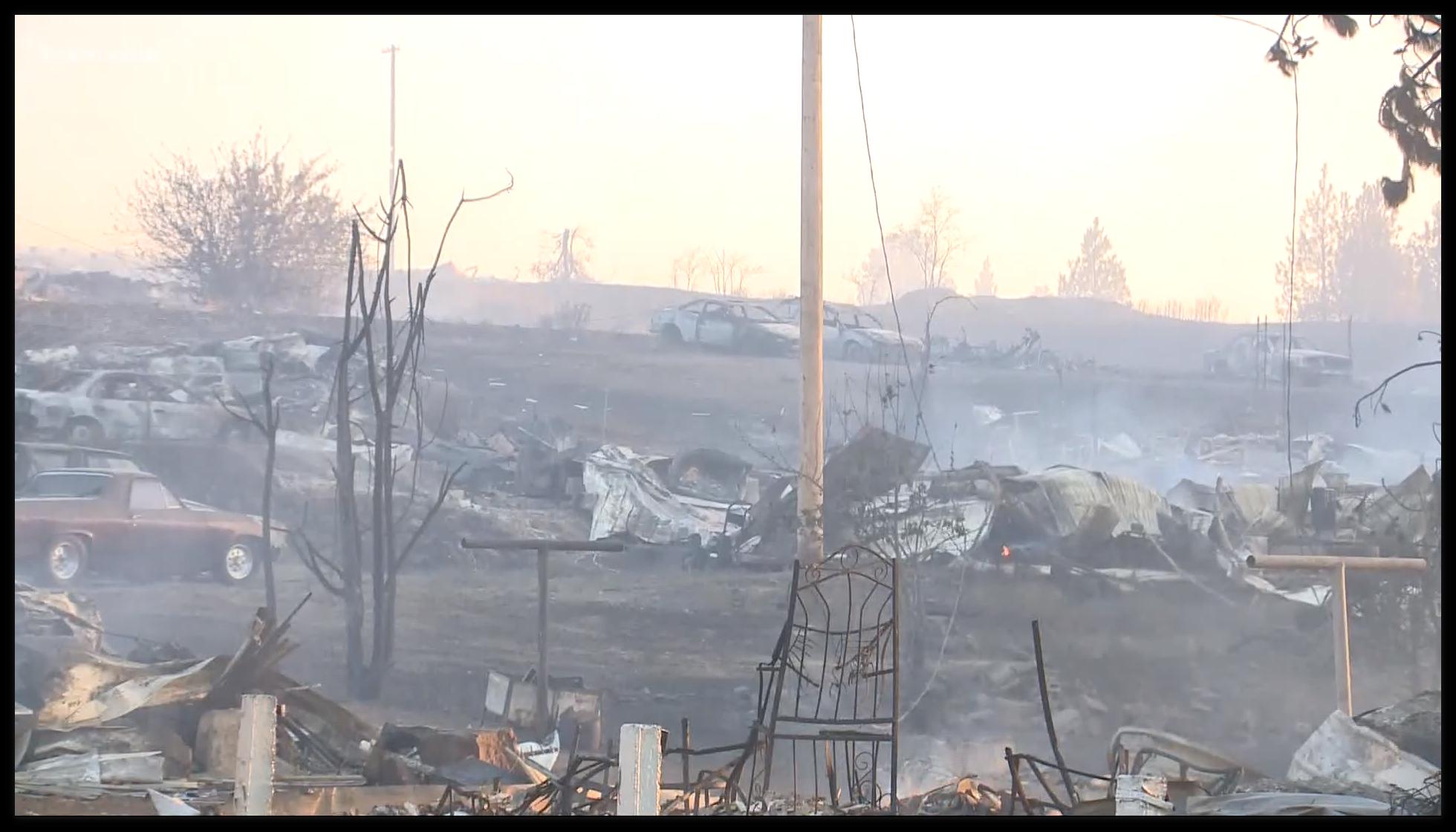In the days leading up to Labor Day weekend, officials with Washington State’s Department of Natural Resources — from Commissioner Hilary Franz on down — spoke out as loudly as they could in an attempt to head off irresponsible behavior that could lead to death, injury, and property destruction during fire season.
Unfortunately, some people either never heard or never heeded their message.
By the time the sun had set yesterday, the Pacific Northwest had joined California in firestorm misery, with hundreds of thousands of acres newly burnt or burning.
Smoke blown east by gusty winds began polluting the Puget Sound lowlands and Oregon’s Willamette Valley not long before sundown on Labor Day, causing air quality to rapidly plummet. Urban Pacific Northwesterners are advised to limit time outdoors, keep the windows closed, and run an air purifier if they have one.
“I’m sick, the amount of new fires today is unreal,” tweeted DNR fire meteorologist Josh Clark. “Early estimates figure 288,000 acres burned today across the state. Numerous homes and property destroyed, 30,000+ without power. Every one of these was 100% human-caused, and therefore 100% preventable.”

“Plus conditions were very well forecasted by yourself and many others,” replied John Abatzoglou. “Believe that your efforts + messaging do help; but these capstone wind events emphasize what science, info, suppression alone can’t fix.”
With dry and windy conditions like those that we’re seeing now, all it takes is one spark to start a red hot conflagration that no firefighting force can contain.
The news coming out of California should have served as a warning to us.
Big Basin Redwoods State Park recently lost all of its historic buildings to fire. Many of the redwoods survived (they’re a hardy, fire resistant species) but the park is no longer the lush green oasis that it once was. Its CCC-built visitors center, constructed in the 1930s, is no more. The park is expected to be closed to visitors for at least a year due to the damage caused by the CZU complex.
Sadly, some Pacific Northwesterners chose not to exercise caution, and as a consequence, Washington and Oregon have seen fires sprout up all over.
The small town of Malden, Washington (near Pullman), suffered a fate similar to Big Basin today. In just a few hours, eighty percent of the town burned to the ground, including the post office, the fire station, and city hall. The devastation was documented by media outlets based in Spokane and Pullman.

Meanwhile, down in California, the Creek Fire is raging out of control.
“The Creek Fire is up to 130,000 acres (203 square miles) and is 0% contained,” reported Marie Edinger of KMPH. “The Fresno County Sheriff’s Office says 25,000–30,000 people have been evacuated, and that many of those people should expect to be away from home for a long while.”
Searing summer fires are not a new problem on the Left Coast, of course.
But fire season didn’t used to be this deadly or destructive.
“Through only early September, wildfires so far this year have burned more than 2 million acres in the state, surpassing 2018 for the most acres destroyed in a year, according to figures from the California Department of Forestry and Fire Protection and Times research,” the Los Angeles Times reported.
The climate crisis has exacerbated the commonality and severity of extreme weather events of all kinds. While the Left Coast burns from incredibly destructive wildfires, the Gulf Coast is grappling with the threat of treacherous hurricanes like Laura, which recently pummeled the Lake Charles area in Louisiana.
We have only ourselves to blame for the damage we’ve caused to our climate. Donald Trump and his enablers can sneer that it’s a hoax all they want — Mother Nature doesn’t care what they think. There’s a message in all of these extreme weather events: rethink your unsustainable and polluting ways.
The Earth is our common home. And our only home: there is no Planet B. Yet we’re trashing it. Destroying it. At breathtaking speed.
If we’re to save what is left of the home we’re borrowing from our children, we are going to have to change how we live, work, play, and govern ourselves.
It is clear that just asking people nicely not set off fireworks, burn debris, or discharge firearms recreationally is not working. It’s time for Washington, Oregon, California, and other states to take a tougher line against activities that can lead to the rapid destruction of everything from state parks to small towns. Activities like burning debris should be prohibited. Other activities should require permits.
And for all our sakes, let’s make sure we significantly increase the budget of the Department of Natural Resources. We need to not only beef up our fire prevention programs, but geologic hazards mapping too, for we live in an area prone to tsunamis, lahars, volcanic eruptions, and landslides.


Anecdotally, a common report is of open scofflaws lighting campfires in parks where campfires are clearly indicated as prohibited. We have generational segments of society with absolutely no sense of community and actual antipathy towards being asked for any concession or inconvenience of wanton desires.